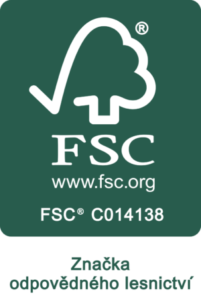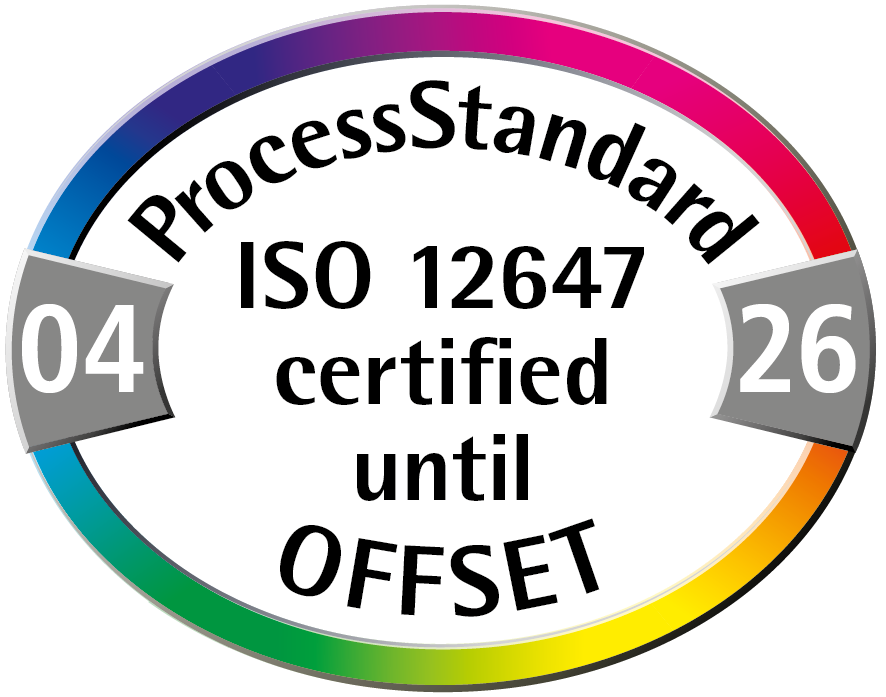Text: Kateřina Czempková, Zbyhněv Novák | Photo: Lukáš Duspiva
Mr. Zbyšek Novák has been with FINIDR since the very beginning and after 46 years in the printing industry he will soon retire. That is why we were happy to interview him at the end of his successful career. You will learn about his printing experience, not only in the military printing press, but also about his fondness for thermals or music in today’s interview.

Zbyšek, how did you get into printing?
I’ve been in the printing business all my life, I started in 1978 when I successfully graduated from an apprenticeship in Brno and became a printer. After my apprenticeship I spent half a year printing in the Těšín printing house, where there were big letterpress machines. During the draft, where they knew my profession as a printer, I accidentally found myself in a military printing house at the Ministry of National Defence. Everyone was going to Slovakia, I was the only one standing at the station with a ticket to Prague. There I had a month of classical military training, and then I was printing. I worked in Dejvice, where the barracks were, and at the Ministry of National Defence, which was a military facility, where we printed mainly manuals and leaflets. Everything was top secret. We had two Grafopress machines there, and what I printed I had to font typed. It was a classic letterpress. I didn’t have to wear overalls or a uniform, I printed normally in civilian clothes. It was an interesting experience. After the military duty in 1983, I went back to the Těšín Printing House, where I printed on letterpress machines until letterpress gave way to classic offset printing. In 1994, I was arranged with the founders of FINIDR, Mr. Drahos, Filipczyk and Niedoba, to be the first printer.
So you were at the birth of FINIDR, the rarity is that you have a personal number six and today we are almost at number 3000. Tell us, what were the first beginnings?
It was made in a tin shed, it was a kind of hangar in the VOP area next to today’s pneuservice. The guys from ADAST came and built the machine, first a four-barrel, then a two-barrel, and waited for me to start the machine. At that time we were running on a two-shift operation, with about 16 people in total. Then the company started to grow, and I always moved on to the next press to start up. We had a camaraderie and family environment in the printery. We didn’t need to watch anything, we all trusted each other. In 2001, I got an offer from Mr. Drahos to be the head foreman. We went for a beer for three times before I accepted.
How did people take it when you went from printer to master?
I had problems with it at first, you become their leader and you lose a lot of friends, but I’m still friends with one of them, he stood by me all the time. I have a lot of friends, but only a few from the industry, some of them are retired. When I started as an operations manager, I didn’t have much experience managing people and it took me a while to get into it. Everyone has a different personality, you have to be able to get along with people and know how to get on with them, not push them too hard. Over time you find out how to get along with people.
Over the years you had a six-year break when you worked back at Těšínská tiskárna, how do you evaluate this experience?
I needed a change, in the years 2014-2020 I worked there as a master printer. I was going for more peace, but the beginning was difficult. The printing house was not at the same technical level as FINIDR, there were no computers used, just a pencil and a head. Also, there were other Roland printing machines, whereas here we have high-end Heidelberg machines. As far as people were concerned, there were fewer people, I had about 28 people under me and I was managing a hundred people in FINIDR at that time.
Why did you decide to come back?
It went from ten to five there. Mr Drahoš came to see me – and as is customary with us – we spoke again. I had to put together the existing team, which was divided. The technicians of the process and the masters of the press managed to get together. Now I am surrounded by experienced people and I know I can always rely on them. I am glad to have spent the last years of FINIDR’s heyday here. If I remember correctly, in 2020 the turnover was under a billion, in 2022 it was already a billion and three-quarters.
This will be no easy task for the successor. Who will become the new head of press operations?
The successor has already been decided and I’m training him. It is Mr. Rosťa Bajtek, the current process technician, who has many years of experience and I don’t see anyone more experienced and so passionate who could take over this job. I believe he will be better than me. Rosťa must first hand over his position as process technician. He has been training Marcin Uchyla for half a year and has been consistently filling in for me when I am not in the company. I’m slowly handing everything over to him. As of July I would like him to run the press centre himself, I will supervise and have more time for operations. I will be leaving FINIDR in September. Since I am retiring, I obviously want to rest, but if worst comes to worst, I am able to help FINIDR, e.g. with some agenda or a stand-in foreman.

After 46 years in the industry, a lot has changed, how do you perceive the emerging young generation in the printing industry?
I don’t know if they’re passionate about it. They don’t really know what they’re getting into, some of them aren’t really impressed with the printery operation. I remember when I saw the first printing machine I was absolutely thrilled with it and every time I walk into the hall and smell the paper and inks I’m at home. It’s technically easier today than it was in our early days. We never had a machine colouring a job for us, we used to print to a slide, we had to have colour in our eye. With printing machines today, it’s basically no longer the printers who have the expertise, but the operators, who have to have different skills, and most importantly, they have to be able to operate the machines by computer and not be colour blind. After 46 years I thought I had nothing to learn, but that’s not true, there is still something to learn.
And what about women, can they be printers too?
Yes, they are also learning to be printers, one of the more skilful ones was a printer’s assistant, but I eventually recommended her for screen printing as a machine operator. If the women are skilled, there is no problem for them to work as printers. After all, even in vocational training we meet young future “women-printers”.
Have you ever tried working in bindery?
I’ve never been tempted. I was once given the choice, and we went through the whole production, but I was fascinated by print, to which I remained faithful.
Zbyšek, what do you like to do in your free time? I heard you like music.
Yes, I like rock music, more into metal. I go to concerts with my friends and my son. We regularly went to Master of Rock in Vizovice, I also went to see Judas Priest in Krakow this year and I am going to see AC/DC in Bratislava. I like listening to Iron Maiden, Powervolf, Ozzy Obsbourne and Sabaton. I don’t like heavy metal, even my wife doesn’t like it. I will go with her to Třinec in October to see Kabát group.
What are you looking forward to in retirement?
I will finally be able to go out in the woods in peace to pick mushrooms, especially in the morning, not in the evening, and I won’t have to check my calendar on my phone. I like to swim, I loved the afternoon shifts because I could go swimming in the morning before my shift. I also like to ride my bike or relax at the spa. My wife and I like the spas in Hungary, Slovakia and Poland.
Do you have any favourite cycling routes or places to go for a beer?
We go on about 40-50 km day trips with my son through Poland or maybe through Komorní Lhotka. Even though I’m a beer drinker, I have a policy of not drinking beer on bike trips because my legs get heavy. I like to have a beer when I get back.
Your wife Elen, who has Russian roots, also works at FINIDR. What kind of cuisine do you prefer at home?
My wife is a very good cook, and an even better pastry chef, but at home we mostly cook our Czech food. Only sometimes we have borscht, apart from that we like Italian food, especially pasta, I can do without meat.
Will you be spending your retirement with your grandchildren?
I’m looking forward to them. My son doesn’t have children yet, he has his own hobby – motorbike. We have a British blue cat at home who keeps us busy. Our retrieved daughter Valerie also helps us with him when we’re away. We have a good family relationship with my ex-wife. My wife is very tolerant, kind, accommodating even when it comes to my work and never gets upset that I go to work on weekends. I like to keep things under control at work, otherwise I get nervous.
Summer is coming, where will you go?
When I hand over my job completely, so in September, Eli and I are planning a trip to spa again.
What would you like to wish to the Finidraks in the end?
I wish that FINIDR will continue to flourish and maintain the standard it has, or even improve it. And to the people, I wish them to be happy at FINIDR, it is a good company and I would say that the work here is one of the best. People should be more proud of FINIDR.
Thank you for the interview.

Zbyhněv Novák
Sign: Aquarius
What I appreciate most by my colleagues Responsibility, honesty, reliability, diligence, helpfulness
The typewriter that gave me a hard time Adast six-color alcohol-moistened inkjet
The best musical experience was Judas Priest and I hope AC/DC will be better
Our cat’s name is Sisak
After a hard day, my favourite thing to do is to go out for a beer with my friends.






